Find A Professional
More Items From Ergsy search
-
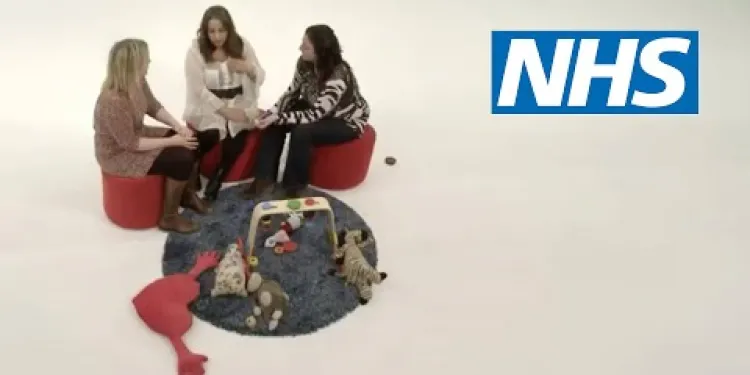
How do I know if I have postnatal depression? | NHS
Relevance: 100%
-

Postnatal Depression - Leanne's Story
Relevance: 93%
-
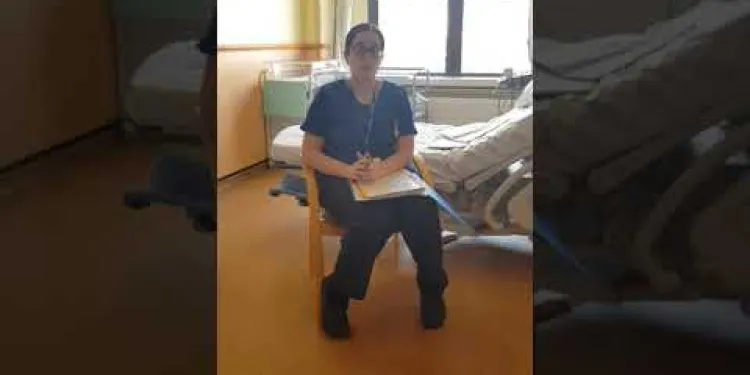
Postnatal Depression
Relevance: 81%
-
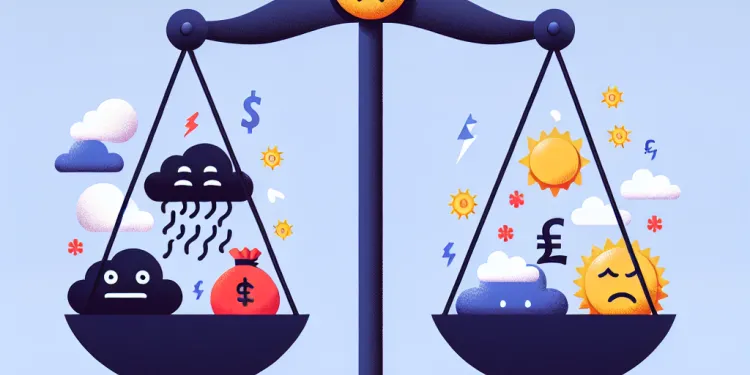
What role do unhealthy dynamics play in causing depression?
Relevance: 78%
-

Treating anxiety and depression - www.slam.nhs.uk
Relevance: 73%
-
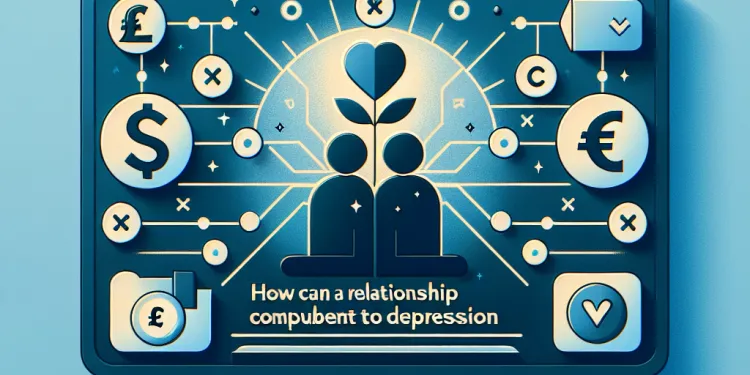
How can a relationship contribute to depression?
Relevance: 70%
-
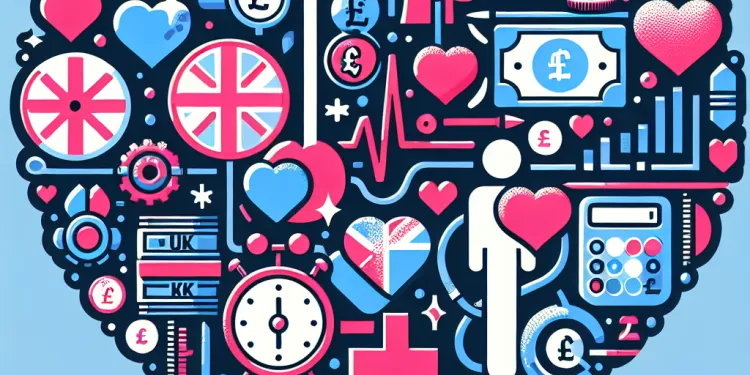
What are the signs that my relationship is making me depressed?
Relevance: 55%
-

Can physical symptoms be linked to relationship-induced depression?
Relevance: 54%
-

Clinical depression: Lawrence's story | NHS
Relevance: 46%
-
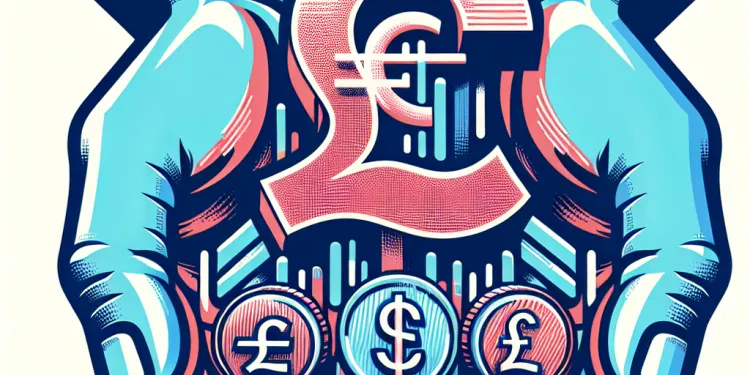
Are there any self-care strategies to cope with relationship-induced depression?
Relevance: 40%
-
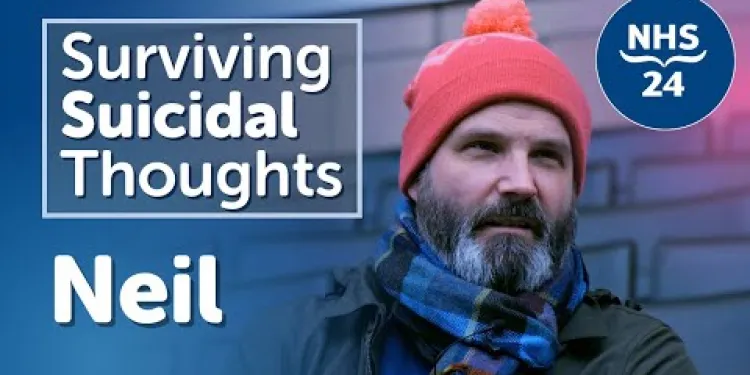
I couldn't celebrate Hibs beating Hearts because I was that depressed
Relevance: 39%
-
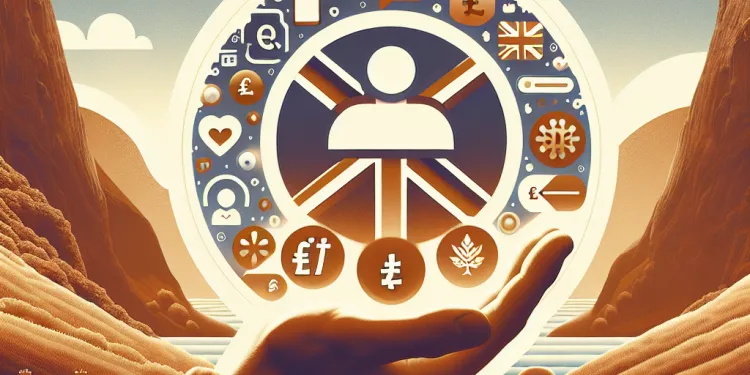
What should I do if my partner dismisses my feelings of depression?
Relevance: 31%
-
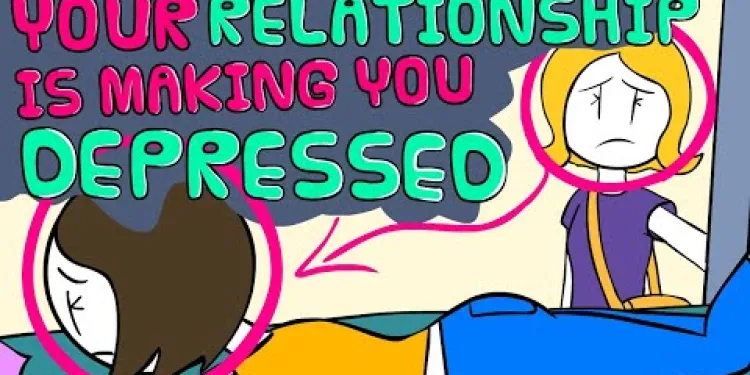
7 Signs Your Relationship is Making You Depressed
Relevance: 29%
-
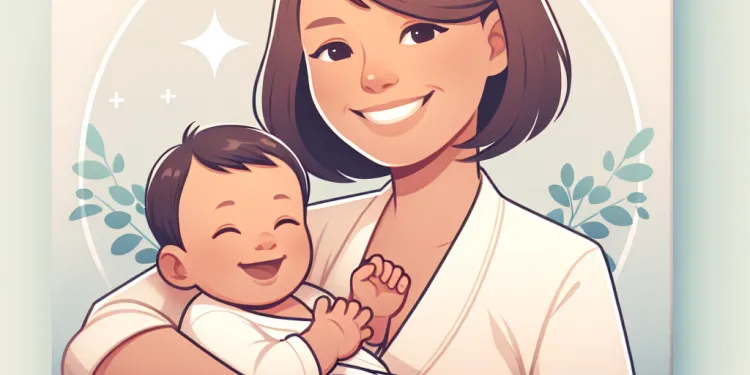
Postpartum Health: Mother and Baby
Relevance: 20%
-
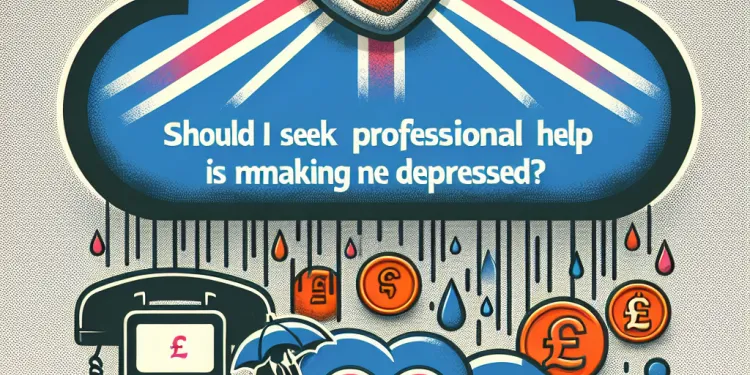
Should I seek professional help if my relationship is making me depressed?
Relevance: 20%
-
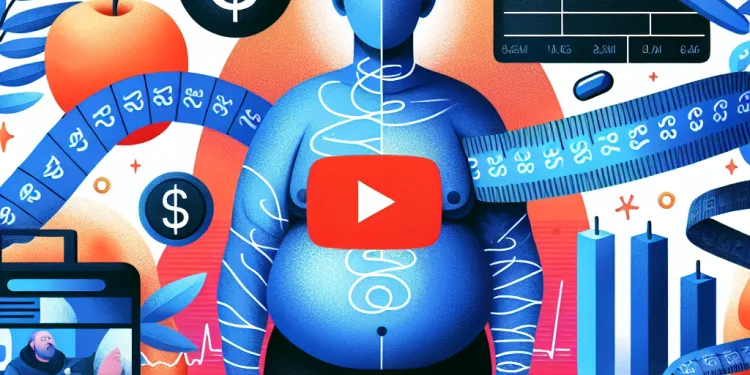
What is the impact of obesity on mental health?
Relevance: 19%
-

Bipolar disorder: Rod's story | NHS
Relevance: 13%
-
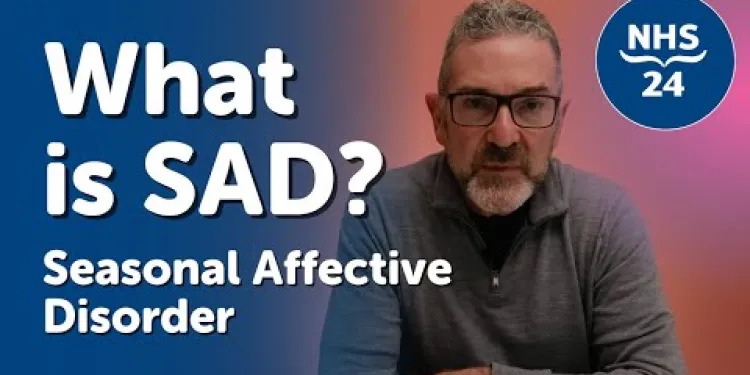
What is Seasonal Affective Disorder? (SAD)
Relevance: 10%
-
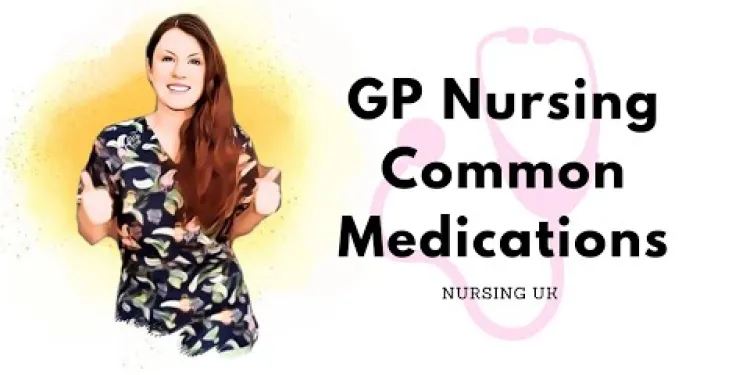
GP Nursing Most Common Medications UK.
Relevance: 10%
-
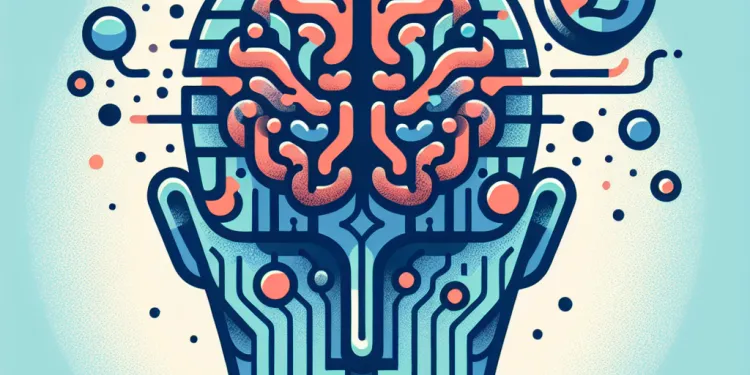
Can concussions lead to mental health issues?
Relevance: 9%
-
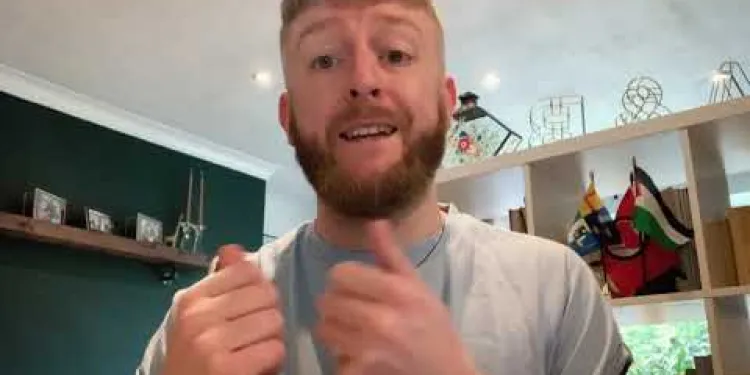
Living with Bipolar Disorder
Relevance: 8%
-

What Causes Erectile Dysfunction (ED) - Disease or Symptom - NHS A to Z - Dr Gill
Relevance: 8%
-
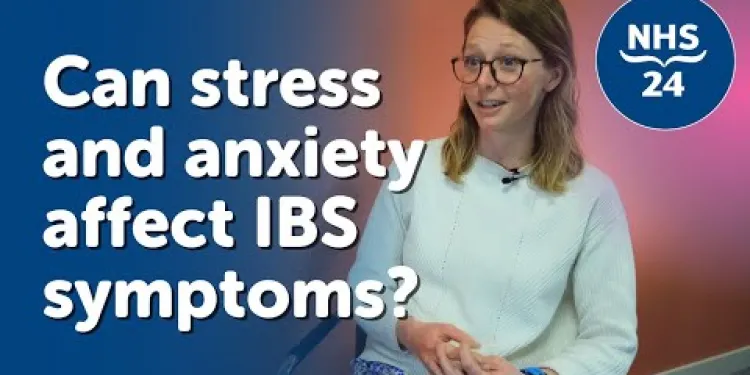
IBS and your mind: Is there a connection?
Relevance: 8%
-

Strategies for Managing Seasonal Affective Disorder
Relevance: 8%
-
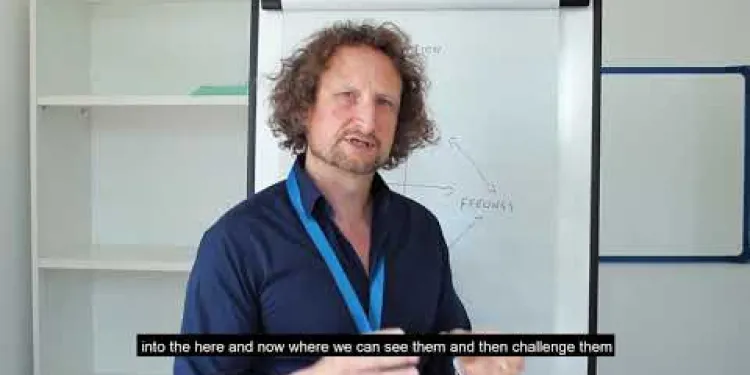
What is CBT
Relevance: 7%
-

What are the potential benefits of CBD?
Relevance: 7%
-
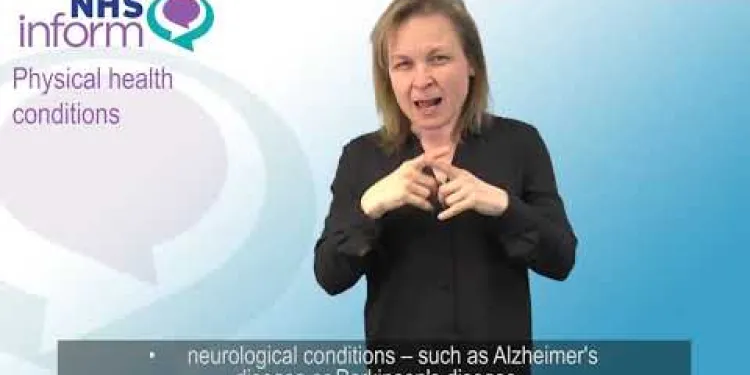
BSL - Causes of insomnia
Relevance: 6%
-
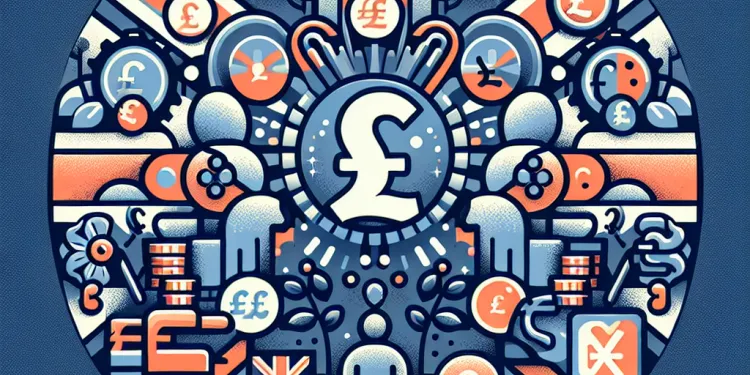
Can relationship problems be resolved to improve mental health?
Relevance: 6%
-

Mental Health Support Resources for Families
Relevance: 6%
-
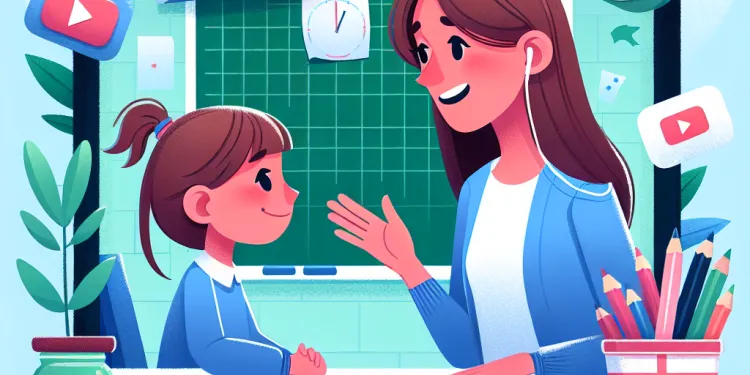
Understanding Mental Health in Children
Relevance: 6%
-
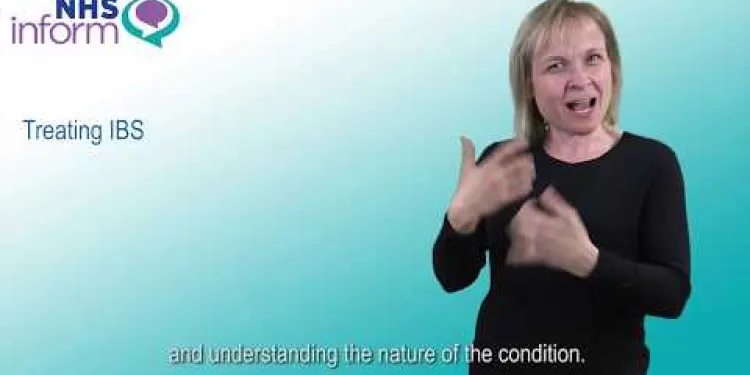
Treating irritable bowel syndrome (IBS)
Relevance: 5%
-
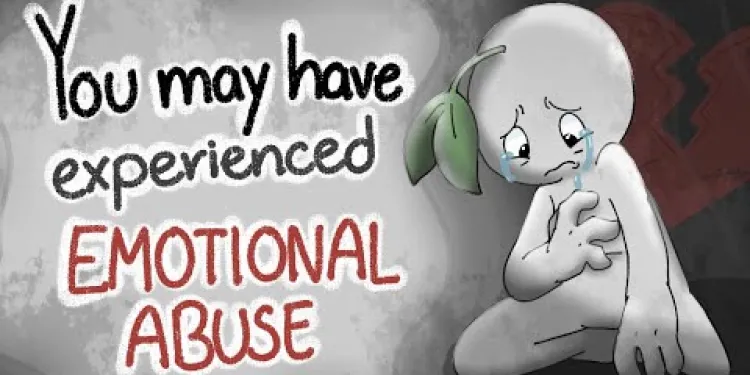
6 Signs of Emotional Abuse and Neglect
Relevance: 5%
-
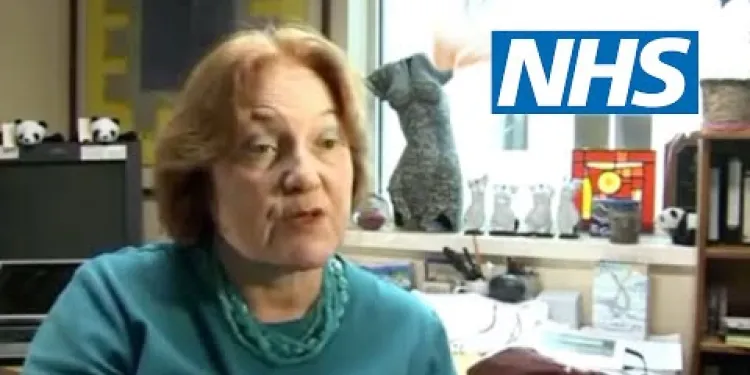
Anorexia nervosa | NHS
Relevance: 5%
-
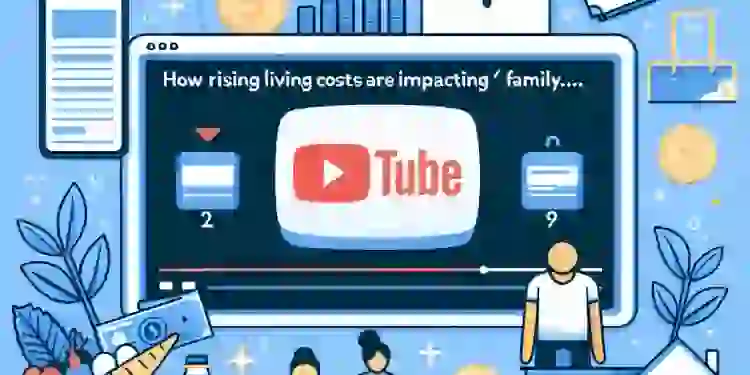
How Rising Living Costs Are Impacting Family Wellbeing
Relevance: 5%
-
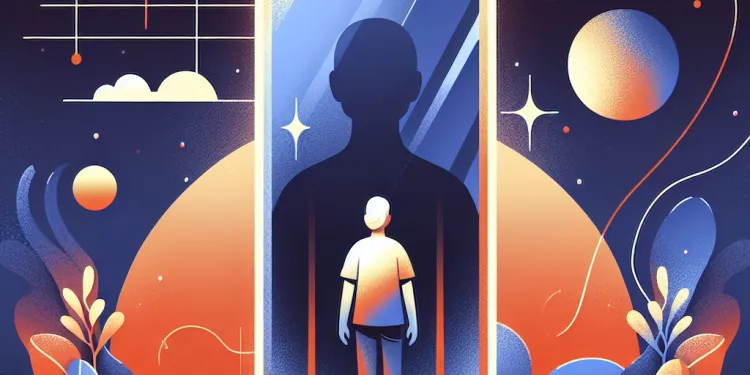
What is Gaslighting?
Relevance: 5%
-

Mental Health: Laura's Story | NHS
Relevance: 4%
-
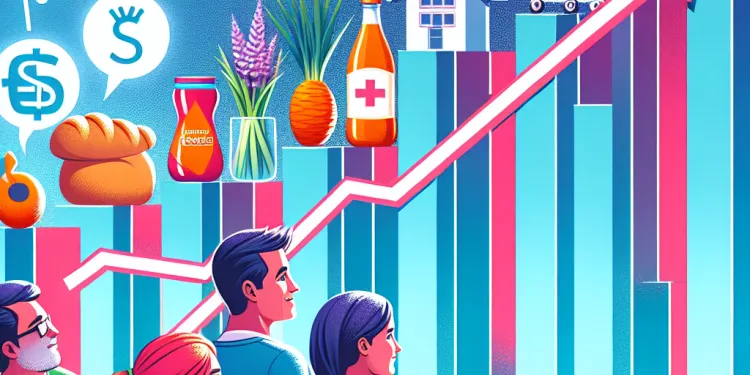
Impact of Rising Living Costs on Family Health
Relevance: 4%
-
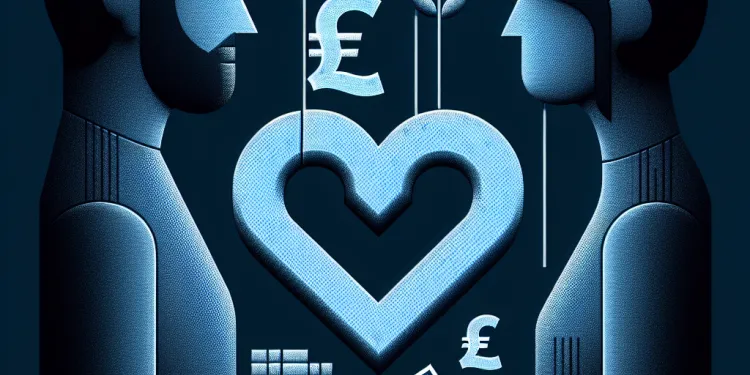
Can ending a toxic relationship improve my mental health?
Relevance: 4%
-
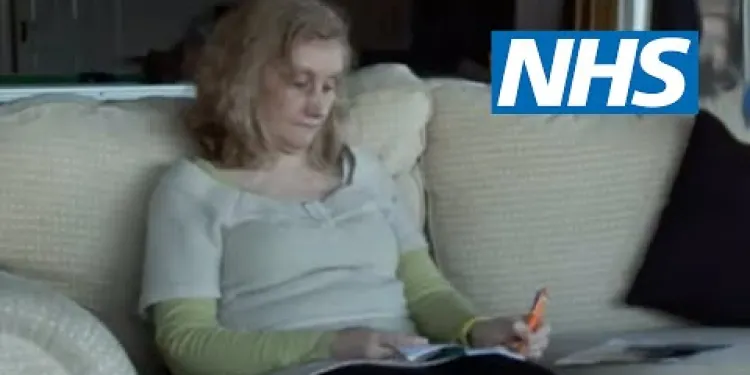
Fibromyalgia: Suzanne's story | NHS
Relevance: 4%
-
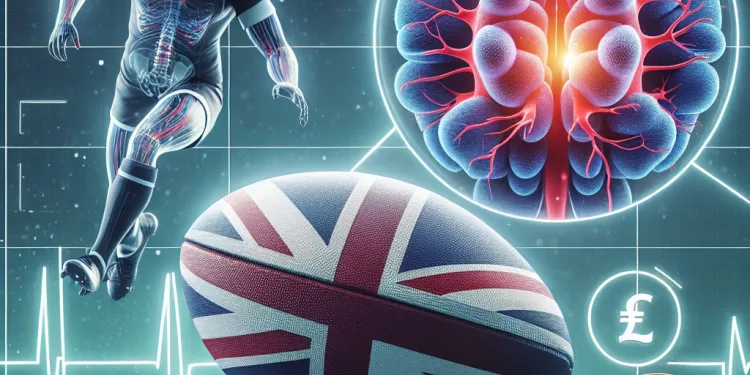
How do concussions impact long-term health in rugby players?
Relevance: 4%
Understanding Postnatal Depression
What is Postnatal Depression?
Postnatal depression (PND) is a type of mood disorder that can affect parents after the birth of a child. It is more profound than the "baby blues," which tend to go away within a couple of weeks. PND can develop within the first year after childbirth and can have significant repercussions on both the parent and child's well-being.
Symptoms and Signs
Common symptoms of postnatal depression include persistent sadness, lack of energy, difficulty bonding with the baby, withdrawal from family and friends, and a sense of hopelessness. Physical symptoms like changes in sleep or appetite, and feelings of worthlessness or guilt, may also emerge. It is important to recognise these symptoms early to seek appropriate help.
Causes and Risk Factors
There is no single cause of PND; it can result from a combination of physical, emotional, and social factors. Hormonal changes, sleep deprivation, previous mental health issues, and lack of support can contribute. Stressful life events and experiencing complications during childbirth also elevate risk.
Treatment and Support
Treatment for postnatal depression can involve talk therapies such as Cognitive Behavioural Therapy (CBT), medication, or a combination of both. Accessing support from general practitioners (GPs), health visitors, and mental health specialists in the UK is crucial. Support groups and peer support can also offer valuable help.
Importance of Seeking Help
Recognising postnatal depression and seeking timely assistance is vital. Untreated PND can lead to prolonged difficulties, impacting the parent-child relationship and family dynamics. Encouragement from partners, family, and friends plays a key role in overcoming the stigma associated with mental health issues and promoting recovery.
Additional Resources
For more information and support related to postnatal depression in the UK, visit the NHS website, or organisations such as the National Childbirth Trust (NCT) and the Association for Postnatal Illness (APNI).
Understanding Postnatal Depression
What is Postnatal Depression?
Postnatal depression is a kind of sadness that can happen to parents after a baby is born. It is not the same as feeling a bit sad, which usually goes away after a few days. Postnatal depression can last for a long time, up to a year after the baby is born, and can make parents feel very upset.
Symptoms and Signs
Some signs of postnatal depression are feeling very sad all the time, being very tired, finding it hard to feel close to the baby, not wanting to see friends or family, and feeling like things will never get better. Other signs can be not sleeping well, not eating well, or feeling guilty or worthless. It is important to notice these signs early to get help.
Causes and Risk Factors
There is no one reason why people get postnatal depression. It can happen because of changes in the body, feeling very tired, having had sadness before, or not having enough help from others. Bad things happening in life or problems when having the baby can also make it more likely.
Treatment and Support
Getting better from postnatal depression can include talking to someone like a counsellor, taking medicine, or both. It is important to get help from doctors or nurses. Support groups where you can talk to other parents who feel the same can also help.
Importance of Seeking Help
It is very important to get help for postnatal depression. If it is not treated, it can cause problems for a long time and make it hard for parents and children to be happy together. It is also important for family and friends to be supportive and help the parent feel better.
Additional Resources
To learn more about postnatal depression and find help, you can visit websites like the NHS, or groups such as the National Childbirth Trust (NCT) and the Association for Postnatal Illness (APNI).
Frequently Asked Questions
What is postnatal depression?
Postnatal depression is a type of mood disorder that affects some parents after having a baby. It can occur within the first year after childbirth and includes feelings of sadness, low energy, anxiety, and changes in sleeping or eating patterns.
How common is postnatal depression in the UK?
Postnatal depression affects around 1 in 10 women in the UK. It can also affect fathers and partners, though it's less commonly discussed.
What are the symptoms of postnatal depression?
Symptoms may include persistent sadness, lack of enjoyment in life, loss of interest in the baby, low energy, difficulty bonding with the baby, trouble sleeping, and feelings of worthlessness or guilt.
How is postnatal depression different from 'baby blues'?
'Baby blues' is a shorter, milder form of mood disturbance that many mothers experience shortly after giving birth. It typically resolves within two weeks. Postnatal depression is more severe and longer-lasting.
What causes postnatal depression?
The exact cause is unknown, but it is believed to be a combination of hormonal changes, psychological adjustment to motherhood, and fatigue. Risk factors may include a history of depression, stressful life events, and lack of support.
Can fathers get postnatal depression?
Yes, fathers and partners can also experience postnatal depression. Symptoms are similar to those in mothers and can be linked to the stress and changes that come with having a new baby.
How is postnatal depression diagnosed?
A healthcare professional, such as a GP or health visitor, can diagnose postnatal depression through discussions about symptoms and medical history. Sometimes questionnaires are used to help assess the condition.
What treatments are available for postnatal depression?
Treatments may include talking therapies (such as cognitive behavioural therapy), medication (antidepressants), and support groups. It's important to seek help early.
Can postnatal depression affect the baby?
Yes, postnatal depression can affect the baby as it may impact the quality of care and bonding. Early treatment is essential to support both mother and child.
What support is available for individuals with postnatal depression in the UK?
Support can come from the NHS, including GPs, health visitors, and midwives. There are also many charities and support groups that offer help, such as the National Childbirth Trust (NCT) and PANDAS Foundation.
Are there self-help strategies for managing postnatal depression?
Yes, self-help strategies include seeking social support, maintaining a healthy lifestyle, setting realistic expectations, taking time for yourself, and joining support groups.
How long does postnatal depression last?
The duration varies; some women recover within a few months, while others may experience symptoms for a year or more. Early treatment can improve outcomes.
Can postnatal depression recur with subsequent pregnancies?
Yes, women who've had postnatal depression are at a higher risk of experiencing it again in future pregnancies. Awareness and early intervention can help manage the risk.
Is it safe to breastfeed while taking antidepressants for postnatal depression?
Many antidepressants are considered safe for breastfeeding, but it's crucial to consult a healthcare professional to find the best option for both mother and baby.
What should I do if I think I have postnatal depression?
If you think you have postnatal depression, it's important to seek help from your GP, health visitor, or midwife. They can provide support and guide you to appropriate treatments.
What is postnatal depression?
Postnatal depression is feeling very sad after having a baby. It can make you feel tired, worried, or not like yourself. It's important to tell someone you trust, like a doctor, if you feel this way. Talking to friends, getting support, and resting can help you feel better.
After having a baby, some parents feel very sad. This is called postnatal depression. It can happen in the first year after the baby is born. Parents might feel tired, worried, or have trouble sleeping and eating.
How many mums get sad after having a baby in the UK?
Many mums feel sad or worried after their baby is born. This is called postnatal depression.
In the UK, about 1 in every 10 mums may feel this way.
If a mum feels sad after having a baby, it is important to talk to a doctor or a helper.
Talking to someone and getting help can make mums feel better.
Tools like talking to friends, using a diary, or apps on your phone can help mums feel less sad.
After having a baby, about 1 out of every 10 mums may feel very sad. Dads and partners can feel this way too, but people don't talk about it as much.
What are the signs of feeling sad after having a baby?
Here are some signs that might show:
- Feeling sad a lot of the time.
- No fun in things you used to like.
- Not feeling interested in your baby.
- Feeling very tired all the time.
- Having trouble feeling close to your baby.
- Hard time sleeping, even when the baby sleeps.
- Feeling like you are not good enough or feeling guilty.
If you feel this way, telling someone you trust can help. Drawing or writing in a journal might help too. You are not alone, and it's good to ask for help.
How is postnatal depression different from 'baby blues'?
When a baby is born, some mothers feel sad or worried. This is called 'baby blues' and it goes away in a few days.
But sometimes, these sad feelings stay for a long time. This is called postnatal depression.
'Baby blues' is short and not very strong. Postnatal depression lasts longer and feels worse.
If you feel sad for a long time, talk to a doctor or nurse. They can help you feel better.
Talking to friends or family can also help. You are not alone, and there are people who want to help you.
'Baby blues' is when new moms feel sad or worried after having a baby. It lasts for less than two weeks. Postnatal depression is when those feelings are very strong and don't go away quickly.
Why do some people feel sad after having a baby?
We don't know for sure what causes it. People think it might be changes in hormones, getting used to being a mom, and being very tired. Some things that might make it more likely are feeling very stressed, having had depression before, and not having people to help you.
Can dads feel sad after a baby is born?
Dads and partners can feel sad after a baby is born too. They can feel the same way as moms do. This might happen because having a new baby can be hard work and it can change a lot of things.
How do doctors know if a new mom has postnatal depression?
Doctors talk to the mom about how she feels. They might ask questions like: - Are you feeling sad or upset? - Are you having trouble sleeping? - Do you have a hard time taking care of your baby? Doctors might also ask her to fill out a form with more questions. If you feel sad after having a baby, talk to a doctor. It's okay to ask for help. Ask a friend or family member to go with you if you want.A doctor or nurse can find out if someone has postnatal depression. They will ask questions about how the person is feeling and their health history. Sometimes, they use question sheets to help understand better.
What can help if you feel sad after having a baby?
Sometimes, after having a baby, you might feel very sad. This is called postnatal depression. There are some things that can help you feel better:
- Talk to a doctor: A doctor can listen to you and tell you what might help.
- Medicines: Some pills can help make you feel less sad. A doctor can tell you about these.
- Talking to someone: You can talk to a counselor. They are kind people who listen and help.
- Support from friends and family: Telling friends or family how you feel can make things better.
These things can help you feel happy again. Remember, it's okay to ask for help!
Treatments can include talking with a therapist, taking medicine, and joining support groups. It is important to get help early.
Can postnatal depression affect the baby?
Yes, postnatal depression can affect the baby.
When a mom feels very sad after having a baby, it can change the way she takes care of the baby.
The baby might feel sad too and have trouble sleeping or eating.
If you feel very sad, talk to a doctor or a friend. They can help you feel better.
Use pictures or videos to help understand how to take care of a baby and yourself.
Yes, feeling very sad after having a baby can also affect the baby. It might make it harder for the parent to take care of the baby and to feel close to them. Getting help quickly is important for both the parent and the baby.
What help can people with postnatal depression get in the UK?
You can get help from doctors, nurses, and midwives in the NHS. There are also many charities and groups that can help you. Some of these are the National Childbirth Trust (NCT) and PANDAS Foundation.
Can I help myself with feeling sad after having a baby?
Yes, there are ways you can help yourself. Here are a few ideas:
- Talk to Someone: Share your feelings with a friend or family member.
- Get Rest: Try to sleep when your baby sleeps.
- Eat Healthy: Try to eat lots of fruits and vegetables.
- Exercise: Go for a short walk each day.
- Relax: Take deep breaths or have a warm bath.
It is also good to ask for help from a doctor or nurse if you are still feeling sad. There are people who can help you feel better.
Yes, there are ways to help yourself. You can:
- Talk to friends or family for support.
- Eat healthy food and exercise.
- Make goals you can reach.
- Take time to relax.
- Join a group to share and talk with others.
How long does feeling sad after having a baby last?
Some women feel better after a few months. For others, it can take a year or longer. Getting help early can make things better.
Can a new mum feel sad again with another baby?
Yes, if a woman has felt very sad after having a baby before, she might feel the same way after her next baby. Knowing this can help her get support early.
Can I safely breastfeed if I am taking medicine for feeling very sad after having a baby?
If you are taking medicine because you feel very sad after your baby is born, you might wonder if it is okay to breastfeed. Here are some things you can do:
- Talk to your doctor or nurse. They can tell you if it is safe.
- Some medicines are okay to take when breastfeeding. Your doctor will know which ones.
- If you have questions, ask your doctor. They are there to help you.
- Remember, you are not alone. Many people can help you feel better.
Some medicine for feeling sad is okay when you breastfeed your baby. But it is very important to talk to a doctor first. The doctor can help find the best medicine for both you and your baby.
What should I do if I think I have postnatal depression?
If you think you have postnatal depression, you can do these things:
- Talk to your doctor. Tell them how you feel. They can help you.
- Share your feelings with someone you trust. This could be a friend or family member.
- Look for a support group. Being with other people who feel the same can help.
- Try to do some light exercise. It can make you feel better.
- Do things that help you relax, like listening to music or taking a bath.
It is important to get help. You are not alone, and people can support you.
If you feel sad after having a baby, it is important to ask for help. You can talk to your doctor, health visitor, or midwife. They can help you feel better and find the right treatment for you.
Useful Links
Useful links from: How do I know if I have postnatal depression? | NHS
- Postnatal depression NHS page providing comprehensive information on symptoms, diagnosis, and treatment of postnatal depression.
- Postnatal Depression - Mind Information from Mind, a leading mental health charity, about postnatal depression, including symptoms and how to get support.
- Postnatal depression and perinatal mental health - Tommy's Tommy's charity offers detailed information on postnatal depression and other perinatal mental health issues, including symptoms and treatment options.
- Postnatal Depression - PANDAS Foundation The PANDAS Foundation provides support and advice specifically focussed on postnatal depression, including how to recognize symptoms and where to find help.
Useful links from: Postnatal Depression - Leanne's Story
- NHS - Postnatal Depression Comprehensive information provided by the NHS on postnatal depression, including its symptoms, causes, diagnosis, and treatment options.
- Mind - Postnatal Depression An overview of postnatal depression from Mind, a UK charity. The page covers symptoms, treatment, and self-care tips for managing the condition.
- Pandas Foundation - Postnatal Depression Support and advice on postnatal depression from the Pandas Foundation, a UK charity dedicated to supporting families affected by perinatal mental health issues.
- Tommy's - Postnatal Depression Information from Tommy's, a UK charity that focuses on pregnancy health, providing guidance on recognizing and treating postnatal depression.
- Ergsy carfully checks the information in the videos we provide here.
- Videos shown by Youtube after a video has completed, have NOT been reviewed by ERGSY.
- To view, click the arrow in centre of video.
- Most of the videos you find here will have subtitles and/or closed captions available.
- You may need to turn these on, and choose your preferred language.
- Go to the video you'd like to watch.
- If closed captions (CC) are available, settings will be visible on the bottom right of the video player.
- To turn on Captions, click settings .
- To turn off Captions, click settings again.
More Items From Ergsy search
-

How do I know if I have postnatal depression? | NHS
Relevance: 100%
-

Postnatal Depression - Leanne's Story
Relevance: 93%
-

Postnatal Depression
Relevance: 81%
-

What role do unhealthy dynamics play in causing depression?
Relevance: 78%
-

Treating anxiety and depression - www.slam.nhs.uk
Relevance: 73%
-

How can a relationship contribute to depression?
Relevance: 70%
-

What are the signs that my relationship is making me depressed?
Relevance: 55%
-

Can physical symptoms be linked to relationship-induced depression?
Relevance: 54%
-

Clinical depression: Lawrence's story | NHS
Relevance: 46%
-

Are there any self-care strategies to cope with relationship-induced depression?
Relevance: 40%
-

I couldn't celebrate Hibs beating Hearts because I was that depressed
Relevance: 39%
-

What should I do if my partner dismisses my feelings of depression?
Relevance: 31%
-

7 Signs Your Relationship is Making You Depressed
Relevance: 29%
-

Postpartum Health: Mother and Baby
Relevance: 20%
-

Should I seek professional help if my relationship is making me depressed?
Relevance: 20%
-

What is the impact of obesity on mental health?
Relevance: 19%
-

Bipolar disorder: Rod's story | NHS
Relevance: 13%
-

What is Seasonal Affective Disorder? (SAD)
Relevance: 10%
-

GP Nursing Most Common Medications UK.
Relevance: 10%
-

Can concussions lead to mental health issues?
Relevance: 9%
-

Living with Bipolar Disorder
Relevance: 8%
-

What Causes Erectile Dysfunction (ED) - Disease or Symptom - NHS A to Z - Dr Gill
Relevance: 8%
-

IBS and your mind: Is there a connection?
Relevance: 8%
-

Strategies for Managing Seasonal Affective Disorder
Relevance: 8%
-

What is CBT
Relevance: 7%
-

What are the potential benefits of CBD?
Relevance: 7%
-

BSL - Causes of insomnia
Relevance: 6%
-

Can relationship problems be resolved to improve mental health?
Relevance: 6%
-

Mental Health Support Resources for Families
Relevance: 6%
-

Understanding Mental Health in Children
Relevance: 6%
-

Treating irritable bowel syndrome (IBS)
Relevance: 5%
-

6 Signs of Emotional Abuse and Neglect
Relevance: 5%
-

Anorexia nervosa | NHS
Relevance: 5%
-

How Rising Living Costs Are Impacting Family Wellbeing
Relevance: 5%
-

What is Gaslighting?
Relevance: 5%
-

Mental Health: Laura's Story | NHS
Relevance: 4%
-

Impact of Rising Living Costs on Family Health
Relevance: 4%
-

Can ending a toxic relationship improve my mental health?
Relevance: 4%
-

Fibromyalgia: Suzanne's story | NHS
Relevance: 4%
-

How do concussions impact long-term health in rugby players?
Relevance: 4%